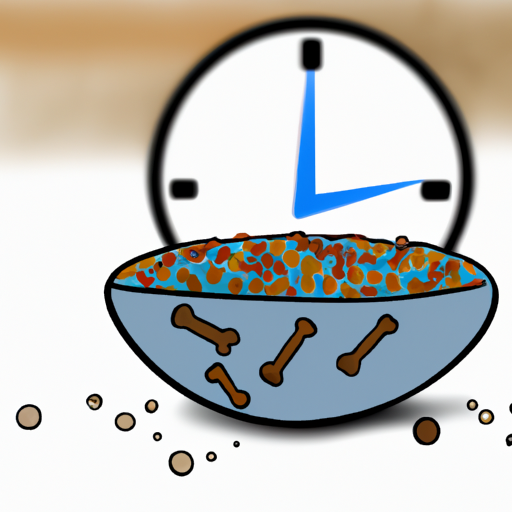Introduction
You may find yourself wondering on occasion, just how fast does your furry friend digest their food? Understanding the digestive process of your pet can be key to ensuring they lead a healthy and happy life. This article will help you delve into the intricacies of a dog’s digestive system, opening up a world that may seem complex, but is truly fascinating.
The Journey of Food in a Dog’s Body
Let’s take an illustrative journey of food in a dog’s body.
-
The Mouth and Esophagus: The first stop is the mouth where food is broken down into smaller pieces, thanks to the dog’s powerful jaws and sharp teeth. From the mouth, a bite of food travels down the esophagus – a process that takes only a few seconds.
-
The Stomach: Once in the stomach, food is mixed with digestive enzymes and stomach acids, which start breaking down the food into a form that the body can absorb. This process takes about 4 to 5 hours.
-
The Small Intestine: The food then moves into the small intestine, where most of the nutrient absorption occurs. This process can take anywhere from 4 to 12 hours.
-
The Large Intestine: Any unabsorbed food matter then passes into the large intestine, where water is absorbed, and the leftover waste material is turned into feces. This process takes approximately 12 to 48 hours.
Overall, the entire process from ingestion to excretion can take between 20 to 48 hours.
Factors Affecting Digestion
Several factors can influence how quickly a dog digests food:
- Age: Younger dogs typically digest food faster than older dogs.
- Diet: High-quality, easily digestible foods can be processed faster than lower-quality products.
- Health Status: Illness can slow down digestion, while a healthy dog might process food more quickly.
The Importance of Understanding Your Dog’s Digestion
Understanding your dog’s digestion can help you better care for them by:
- Identifying any potential digestive issues early
- Ensuring they are getting the right nutrients
- Adjusting feeding times and quantities as necessary
Frequently Asked Questions (FAQs)
Q: What can I do to help my dog digest their food better?
A: Feeding them high-quality, easily digestible food and ensuring they get regular exercise can help.
Q: How can I tell if my dog has a digestive issue?
A: Signs of digestive issues can include changes in appetite, diarrhea, vomiting, and lethargy.
Q: Can I feed my dog human food?
A: While some human foods are safe for dogs, others can be harmful. Always check with a vet before adding any new food to your dog’s diet.
Q: How often should I feed my dog?
A: Most dogs should be fed two meals a day, but this can vary based on age, health, and size.
Q: Why does my dog eat grass?
A: Dogs can eat grass for many reasons, including to induce vomiting if they’re feeling ill, or simply because they like the taste.
Understanding your dog’s digestive system is an integral part of ensuring their health and happiness. The more you know, the better you can care for your furry friend.



